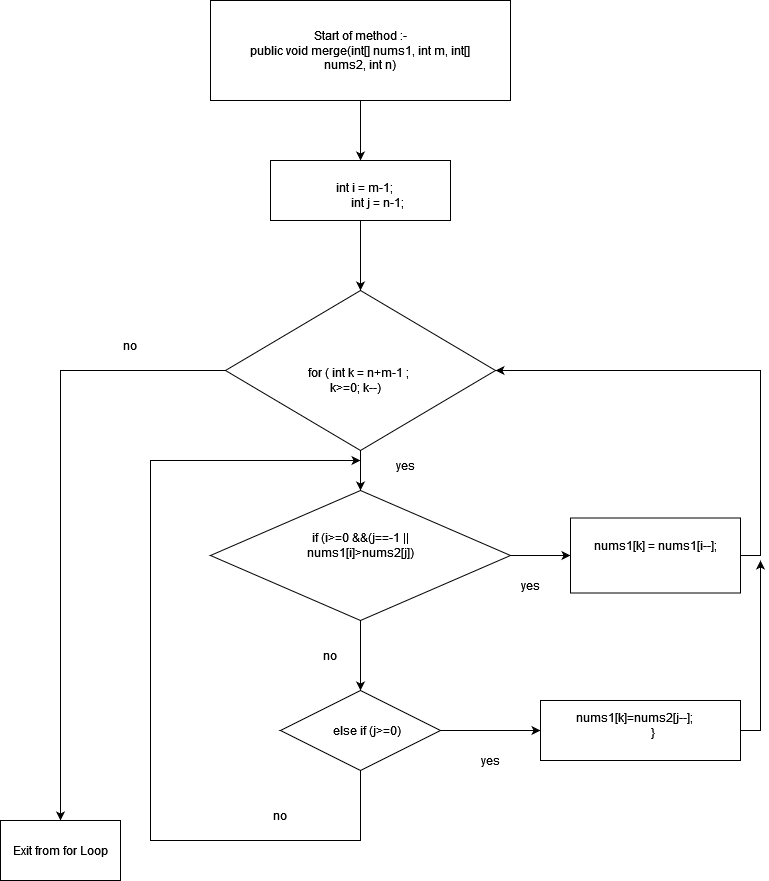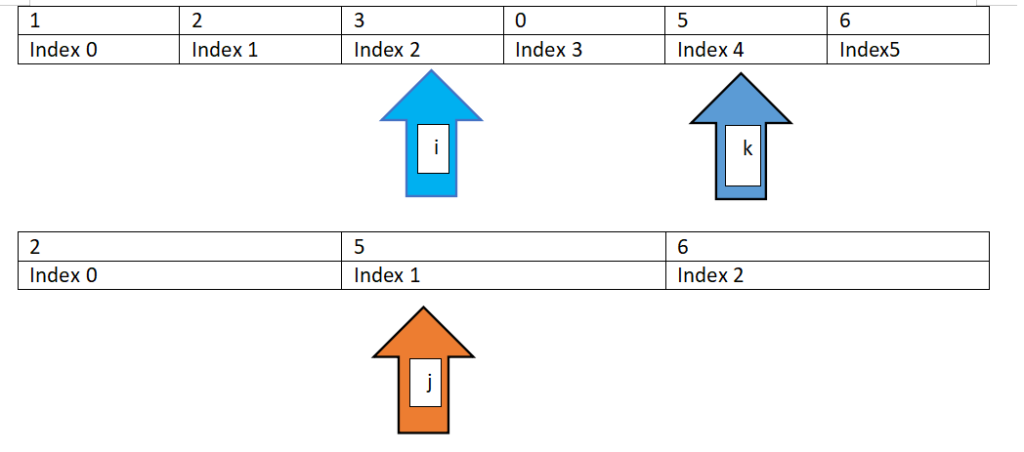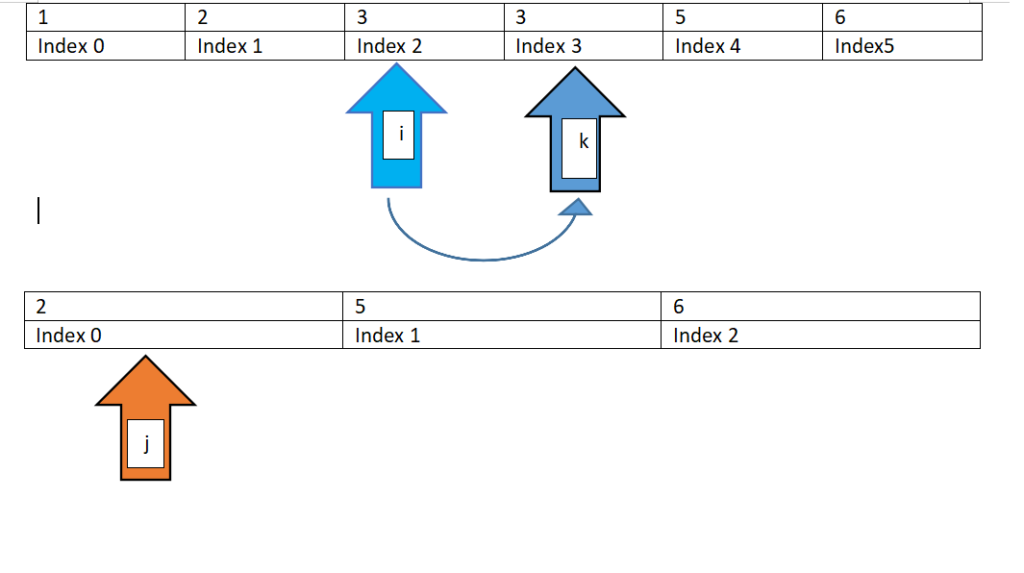Merge Sorted Array solution in java
You are given two integer arrays nums1 and nums2, sorted in non-decreasing order, and two integers m and n, representing the number of elements in nums1 and nums2 respectively.
Merge nums1 and nums2 into a single array sorted in non-decreasing order.
The final sorted array should not be returned by the function, but instead be stored inside the array nums1. To accommodate this, nums1 has a length of m + n, where the first m elements denote the elements that should be merged, and the last n elements are set to 0 and should be ignored. nums2 has a length of n.

The problem is taken from the below mentioned link:- Merge Sorted Array Problem
Flow Diagram:-

Approach:-
Here we will use the two pointer logic. Here we have provided two already sorted arrays of nums1[] and nums2[]. And we have given the the m, which is the last already filled places for nums1[] and n, which is the size of nums2[]. And nums[1] has enough empty places so that we can store the final sorted array in nums1[].
If we take the example 1:-
nums1[]
| 1 | 2 | 3 | 0 | 0 | 0 |
| Index 0 | Index 1 | Index 2 | Index 3 | Index 4 | Index5 |
nums2[]
| 2 | 5 | 6 |
| Index 0 | Index 1 | Index 2 |
Now two pointer is taken, i for the nums1[] and j for nums2[]. where starting value of them will be
i = m-1 = 2 and j = m-1 = 2. Now we will compare the corresponding array elements for the two given array at the index position 2. The larger one will be placed at the k position of the nums[1] which has a starting value of 5 in his case.
So for loop 1:-

As nums2[2]>nums1[2]
For loop 2:-
j = 1 , i = 2 , k = 4
As nums2[1] =5> nums1[2]=3

For loop 3:-
j = 0 , i = 2 , k =3
As nums2[0] =2< nums1[2]=3

Code:-
class Solution {
public void merge(int[] nums1, int m, int[] nums2, int n) {
int i = m-1;
int j = n-1;
for ( int k = n+m-1 ; k>=0; k--) {
if (i>=0 &&(j==-1 || nums1[i]>nums2[j]) )
{
nums1[k] = nums1[i--];
}
else if (j>=0){
nums1[k]=nums2[j--];
}
}
}
}
Code Snippest:-
